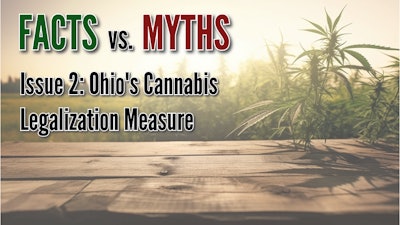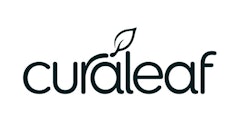
What does Issue 2 mean for Ohio?
That’s the question starting off an attack ad against the state’s adult-use cannabis legalization ballot measure in an attempt to sway voters from supporting reform.
The “Flatline” television advertisement, paid for by Weed Free Kids, a prohibitionist group opposing Ohio’s Issue 2, paints a dim picture of what the group believes are the risks that children could face should voters pass the measure on Nov. 7.
The advertisement includes six claims regarding the measure and depicts the sound of a heartbeat flatlining, indicating that children ingesting THC-infused edibles could lead to death.
Since the ad first aired earlier this month, Issue 2 sponsor the Coalition to Regulate Marijuana Like Alcohol (CRMLA) issued a cease and desist letter to stations throughout Ohio and West Virginia that are running the “Flatline” ad as well as a “Candy” ad paid for by Weed Free Kids that claims “stores could be flooded with candy laced with a drug that puts kids at risk.”
CRMLA campaign spokesperson Tom Haren called the ads misleading in an Oct. 5 press release.
“It’s incredibly disappointing anytime Ohio voters are lied to, but it’s clear our opposition sees no other way to defeat Issue 2,” he said. “While our campaign is engaged in a factual, adult conversation with Ohio voters about the importance of regulating and taxing marijuana use for those 21 and over, our opponents are relying on a dark money organization to spread lies and falsehoods about our initiative.”
Here, Cannabis Business Times compares the advertisements’ claims to actual language from CRMLA’s proposed statutory measure.
Claim 1: “Recreational marijuana [will be] sold in thousands of Ohio stores.”
What the Proposal Says: A forthcoming adult-use cannabis market will initially include up to roughly 180 dispensaries: Ohio’s existing medical cannabis operators could apply to transition their approximately 130 retail facilities to adult-use operations, and there would be 50 new licenses available for social equity operators as outlined in the initiated measure. A newly established Division of Cannabis Control within the state’s Department of Commerce could potentially issue more licenses after two years based on market conditions.
Claim 2: These dispensaries would have “no protections for children.”
What the Proposal Says: Only adults 21 and older will be allowed inside and to purchase from adult-use dispensaries, which are required to check customer IDs. Also, language from the text of the initiated measure states that the Division of Cannabis Control “may adopt narrowly tailored time and place restrictions preventing advertising targeted to minors.” The measure also states that adult-use cannabis operators and labs are prohibited from being located within 500 feet of places like schools, public parks and playgrounds.
Claim 3: “Issue 2 contains ZERO labeling requirements for marijuana edibles.”
What the Proposal Says: Language from the initiated measure states that the Division of Cannabis Control shall adopt rules on “prescribing standards and procedures for product packaging and labeling of adult-use cannabis products” and that licensed adult-use dispensaries shall only accept adult-use cannabis from licensed operators “that has been prepackaged and labeled in compliance with” Ohio Revised Code.
Claim 4: Cannabis edibles “look like candy” and “are marketed as candy.”
What the Proposal Says: Language from the initiated measure states that the Division of Cannabis Control “may adopt rules regulating advertisements of license holders to prevent advertisements that are false, misleading, targeted to minors, promote excessive use, or that promote illegal activity.”
Claim 5: “The number of kids poisoned accidentally with THC will skyrocket.”
Key Insights: While increased access to cannabis products like edibles means more homes in Ohio could potentially have THC-infused edibles, regulations in most states where adult-use cannabis is already legal include child-proof packaging requirements for these products, which the Division of Cannabis Control could also adopt in Ohio. Notably, one main purpose behind a licensed industry is to reduce unregulated cannabis sales that are often unsafe and untested. State-licensed cannabis industries throughout the U.S. include stringent regulations on testing products for contaminants like mold, unsafe pesticides and heavy metals.
Additional Insights: In Colorado, which launched adult-use cannabis sales in 2014, the number of calls to poison control mentioning human cannabis exposure increased from 41 calls in 2006 to 276 calls in 2019, according to a legalization report from the state’s Division of Criminal Justice’s Office of Research and Statistics. However, between 2014 and 2017, the frequency of calls stabilized before increasing again in 2018. This trend indicates that poison control calls had been increasing prior to adult-use legalization, the calls stabilized in the immediate aftermath of sales commencing, and then the call frequencies continued to rise on a pre-legalization upward trajectory thereafter.
Claim 6: Issue 2 has “zero safeguards” and is “dangerous for Ohio kids.”
What the Proposal Says: As noted above, language from the initiated measure provides for the creation of a Division of Cannabis Control to put in place age compliance protections at adult-use retail facilities; standards for packaging and labeling; and regulations prohibiting marketing and advertising to minors.

























